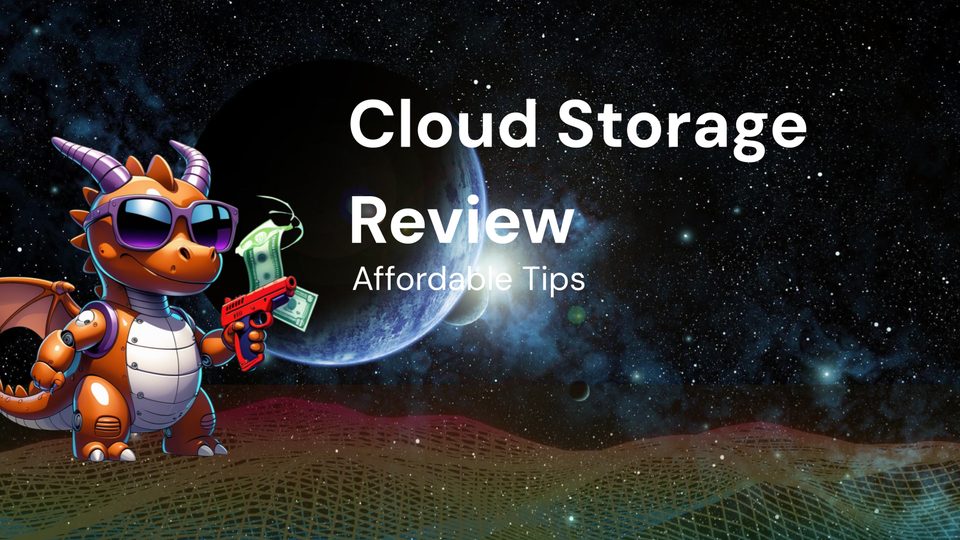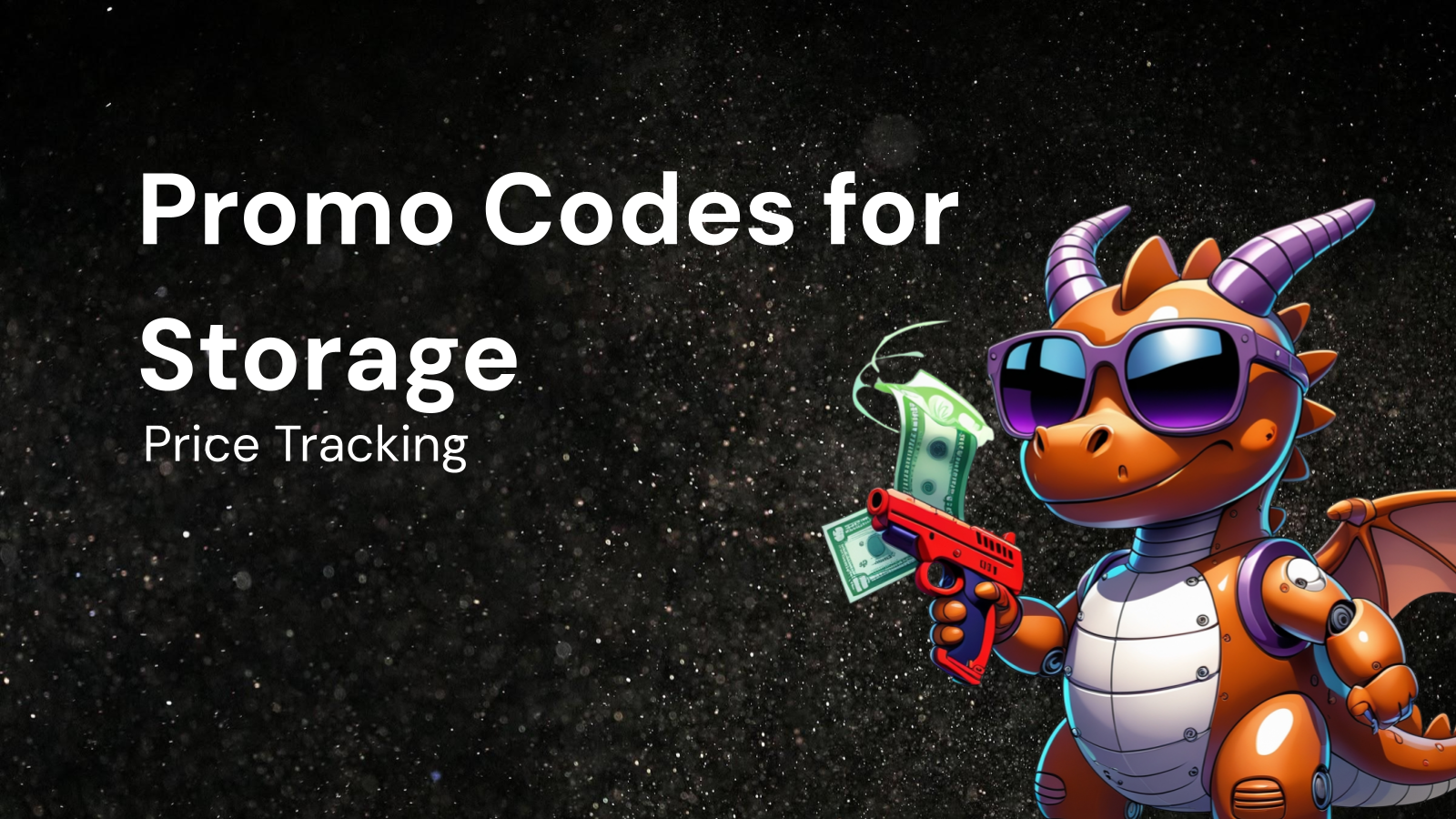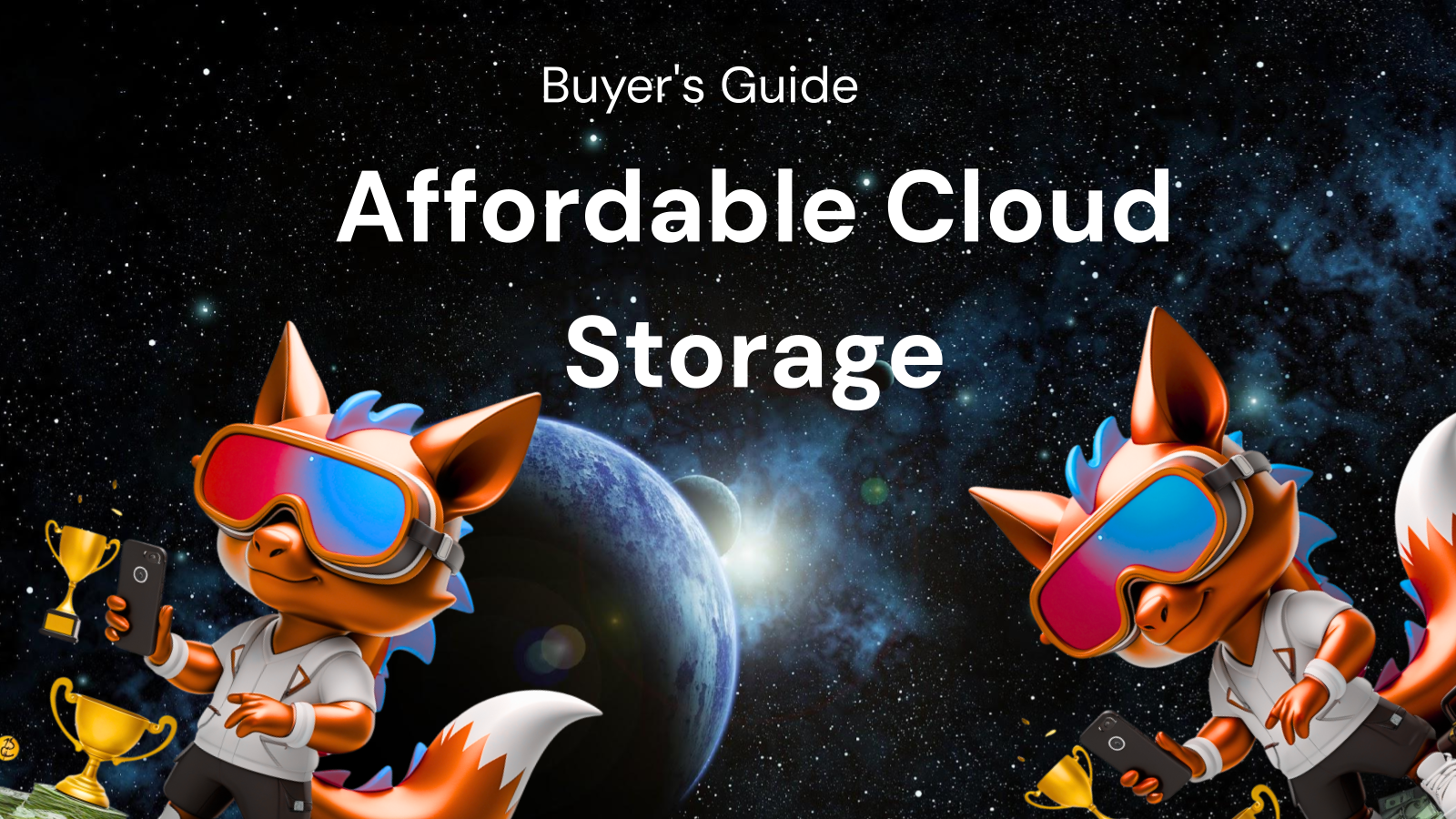Reviewing Cloud Storage: Budget Tips for Affordable Options

Reviewing Cloud Storage: Budget Tips for Affordable Options
In today's digital age, cloud storage has become an indispensable tool for individuals and businesses alike. From safeguarding precious memories to facilitating seamless collaboration, the cloud offers a myriad of benefits. However, the cost of cloud storage can quickly add up, especially when dealing with large amounts of data or specific feature requirements. This comprehensive guide delves into the world of cloud storage, offering a detailed review of various providers, practical budget tips, and actionable strategies to help you find affordable options without compromising on essential features and security.
Why Cloud Storage is Essential:
Before diving into budget-friendly options, let's recap why cloud storage is crucial:
- Data Backup and Recovery: Cloud storage provides a secure and reliable backup solution, protecting your data from hardware failures, natural disasters, or accidental deletions.
- Accessibility: Access your files from anywhere with an internet connection, enabling seamless productivity and collaboration across devices.
- Scalability: Easily scale your storage capacity as your needs grow, without the hassle of managing physical hardware.
- Collaboration: Share files and folders with ease, facilitating teamwork and streamlining workflows.
- Cost-Effectiveness: Often more cost-effective than traditional storage methods, especially for businesses with fluctuating storage needs.
- Security: Reputable cloud providers invest heavily in security measures to protect your data from unauthorized access and cyber threats.
Understanding Your Storage Needs:
The first step towards finding affordable cloud storage is to accurately assess your needs. Consider the following factors:
- Storage Capacity: How much data do you currently have, and how much do you anticipate needing in the future? Consider both your current data and projected growth.
- Types of Files: What types of files will you be storing? Large media files (photos, videos) consume more storage space than documents or spreadsheets.
- Access Frequency: How often will you need to access your files? If you need frequent, real-time access, you'll need a provider with fast upload and download speeds.
- Collaboration Requirements: Do you need to share files with others and collaborate on documents in real-time?
- Security Needs: What level of security do you require? Consider encryption, multi-factor authentication, and compliance certifications.
- Budget: How much are you willing to spend on cloud storage per month or year?
Reviewing Cloud Storage Providers: A Comparative Analysis
The cloud storage market is crowded with providers, each offering different features, pricing plans, and security measures. Here's a detailed review of some of the most popular options, focusing on their affordability and value for money:
1. Google Drive:
- Overview: Google Drive is a popular cloud storage service integrated with the Google ecosystem (Gmail, Google Docs, Google Photos, etc.). It's known for its ease of use, collaboration features, and generous free storage allowance.
- Pricing: Offers 15GB of free storage shared across Google services. Paid plans start at $1.99/month for 100GB. Higher tiers offer 200GB, 2TB, and more.
- Pros:
- Generous free storage allowance.
- Seamless integration with Google apps.
- Excellent collaboration features (Google Docs, Sheets, Slides).
- Easy to use interface.
- Affordable pricing for basic storage needs.
- Cons:
- Shared storage across Google services can quickly fill up.
- Privacy concerns related to Google's data collection practices.
- Customer support can be limited.
- Budget Tip: Utilize the 15GB free storage effectively. Compress large files and remove unnecessary data to maximize your free space.
2. Microsoft OneDrive:
- Overview: OneDrive is Microsoft's cloud storage service, tightly integrated with Windows and Microsoft Office. It's a good option for users heavily invested in the Microsoft ecosystem.
- Pricing: Offers 5GB of free storage. Paid plans start at $1.99/month for 100GB. Microsoft 365 Personal and Family subscriptions include 1TB of OneDrive storage, along with access to Office apps.
- Pros:
- Seamless integration with Windows and Microsoft Office.
- Automatic syncing of files.
- Good collaboration features.
- Generous storage included with Microsoft 365 subscriptions.
- Cons:
- Limited free storage (5GB).
- Can be expensive if you only need cloud storage and not Office apps.
- Not as platform-agnostic as some other options.
- Budget Tip: Consider a Microsoft 365 Personal or Family subscription if you need both cloud storage and Office apps. The included 1TB of OneDrive storage offers excellent value.
3. Dropbox:
- Overview: Dropbox is a well-established cloud storage provider known for its reliability, ease of use, and focus on file synchronization.
- Pricing: Offers only 2GB of free storage, which is quite limited. Paid plans start at $11.99/month for 2TB (Dropbox Plus).
- Pros:
- Excellent file synchronization across devices.
- Easy to use interface.
- Reliable and stable service.
- Good security features.
- Cons:
- Very limited free storage.
- More expensive than some other options, especially for small storage needs.
- Collaboration features are not as robust as Google Drive.
- Budget Tip: Dropbox is not the most budget-friendly option, especially with its limited free storage. Explore other providers if you're looking for affordable storage. Consider Dropbox only if you heavily rely on its specific synchronization features and are willing to pay a premium.
4. pCloud:
- Overview: pCloud is a secure cloud storage provider that emphasizes privacy and offers lifetime subscription options.
- Pricing: Offers 10GB of free storage. Paid plans start at $4.99/month for 500GB or $9.99/month for 2TB. Lifetime subscriptions are also available.
- Pros:
- Generous free storage allowance.
- Strong focus on security and privacy.
- End-to-end encryption options.
- Lifetime subscription options can be cost-effective in the long run.
- Cons:
- Less well-known than some other providers.
- Collaboration features are not as advanced as Google Drive.
- Can be expensive upfront if you choose a lifetime subscription.
- Budget Tip: pCloud's lifetime subscriptions can be a great investment if you plan to use cloud storage for many years. Calculate the total cost of ownership compared to monthly subscriptions to determine the best option for your budget.
5. IDrive:
- Overview: IDrive is a cloud storage provider that focuses on backup and offers affordable plans for backing up multiple devices.
- Pricing: Offers 5GB of free storage. Paid plans start at $79.50/year for 5TB (IDrive Personal).
- Pros:
- Affordable pricing for large storage capacities.
- Ability to back up multiple devices with a single account.
- Versioning support for restoring previous versions of files.
- Good for backup purposes.
- Cons:
- Interface can be clunky compared to other providers.
- Not as focused on collaboration as Google Drive or OneDrive.
- Free storage is limited.
- Budget Tip: IDrive is a great option if you need to back up multiple computers, phones, or tablets. Its multi-device support and affordable pricing make it a cost-effective solution for comprehensive backup.
6. MEGA:
- Overview: MEGA is a cloud storage provider that emphasizes privacy and offers end-to-end encryption.
- Pricing: Offers 20GB of free storage. Paid plans start at €4.99/month (approximately $5.50 USD) for 400GB.
- Pros:
- Generous free storage allowance.
- End-to-end encryption for enhanced security.
- Focus on privacy.
- Cons:
- Can be slow upload and download speeds at times.
- Past controversies regarding the company's founders.
- Not as widely used as some other providers.
- Budget Tip: MEGA's 20GB free storage is a significant advantage. Utilize this free space effectively and consider upgrading to a paid plan if you need more storage and appreciate the strong security features.
7. Backblaze B2 Cloud Storage:
- Overview: Backblaze B2 is a cloud storage service geared toward developers and businesses needing highly scalable, low-cost object storage. It's a good option for archiving large amounts of data.
- Pricing: Pricing is based on usage. It's typically around $0.005/GB/month for storage and $0.004/GB for download. They offer the first 10GB free.
- Pros:
- Very affordable for large amounts of data.
- Highly scalable.
- Good for archival purposes.
- Cons:
- Not as user-friendly as other providers.
- Requires technical knowledge to set up and manage.
- Downloads can be expensive if you frequently access your data.
- Budget Tip: Backblaze B2 is a cost-effective option for long-term archival storage. It's not ideal for everyday file syncing and sharing due to its usage-based pricing and technical complexity.
Budget Tips for Affordable Cloud Storage:
Beyond choosing the right provider, here are some actionable budget tips to help you minimize your cloud storage costs:
- Utilize Free Storage: Take full advantage of the free storage offered by various providers. You might be surprised at how much you can store without paying a dime.
- Clean Up Your Data: Regularly delete unnecessary files, duplicates, and old backups to free up storage space.
- Compress Large Files: Compress large files (especially images and videos) before uploading them to the cloud. This can significantly reduce their storage footprint. Use tools like zip files or specialized compression software.
- Choose the Right File Format: Opt for efficient file formats that minimize file size without sacrificing quality. For example, use JPEG instead of BMP for images, or MP4 instead of AVI for videos.
- Share Files Instead of Duplicating: Instead of creating multiple copies of the same file, share a single file with multiple users using the provider's sharing features.
- Optimize Photo and Video Resolution: Lower the resolution of your photos and videos if you don't need high-resolution versions for everyday use. Cloud services like Google Photos offer options to compress and optimize media.
- Review Your Usage Regularly: Periodically review your cloud storage usage to identify areas where you can optimize your storage and reduce costs.
- Shop Around for Deals: Cloud storage providers often offer discounts and promotions, especially during holidays or special events. Keep an eye out for these deals and switch providers if necessary.
- Consider Lifetime Subscriptions: If you plan to use cloud storage for many years, a lifetime subscription can be a cost-effective option. However, carefully evaluate the provider's long-term stability before committing to a lifetime plan.
- Explore Open-Source Cloud Storage Solutions: If you have technical expertise, consider setting up your own cloud storage server using open-source software like Nextcloud or Seafile. This gives you complete control over your data and storage costs, but requires more technical knowledge.
- Use Hybrid Cloud Storage: Combine local storage with cloud storage to optimize costs. Store frequently accessed files locally and archive less frequently used files in the cloud.
- Cancel Unused Subscriptions: Regularly review your subscriptions and cancel any that you're not using to avoid unnecessary costs.
- Consider Cloud Storage for Specific Needs: Don't use one cloud storage for everything. You may want to use a cheaper option like Backblaze B2 for archival and a more user-friendly option like Google Drive for everyday syncing and sharing.
- Understand Data Transfer Costs: Be aware of data transfer costs, especially download fees. Some providers charge for downloading data from the cloud, which can quickly add up if you frequently access your files.
Conclusion:
Finding affordable cloud storage requires careful planning, a thorough understanding of your needs, and a willingness to explore different providers and strategies. By following the tips and reviews outlined in this guide, you can choose a cloud storage solution that fits your budget without compromising on essential features, security, and reliability. Remember to regularly review your storage usage, optimize your data, and shop around for deals to ensure you're getting the best possible value for your money. Ultimately, the best cloud storage solution is the one that meets your specific needs and budget, enabling you to securely store, access, and share your data with ease and peace of mind.




Comments ()